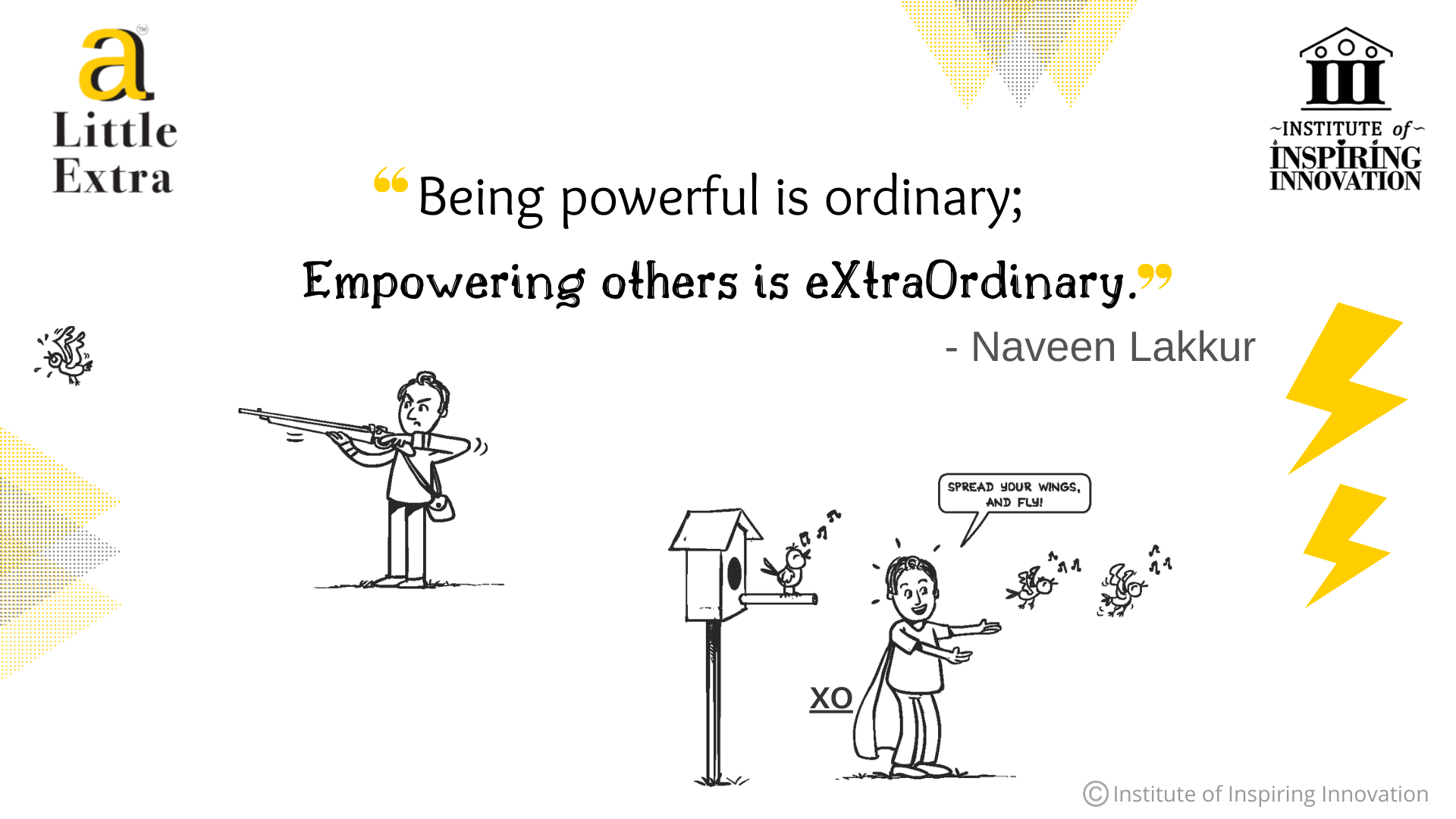Empowering others is eXtraOrdinary

“Being powerful is ordinary; Empowering others is eXtraOrdinary.” – Naveen Lakkur
The word ‘corporation,’ ‘company,’ ‘enterprise’ reminds us of the word power. Corporations are powerful due to the years of doing business and building relationships. They continuously innovate and make policy changes to further business.
Some companies or people go a Little Extra, use their power to empower others so that they can all succeed together. Sometimes these people may find themselves empowering not just other people, they apply the concept of ‘empowering others’ even to ‘machines’.
Here are a few stories that inspire and set themselves as examples to this XO quote.

Leave a comment